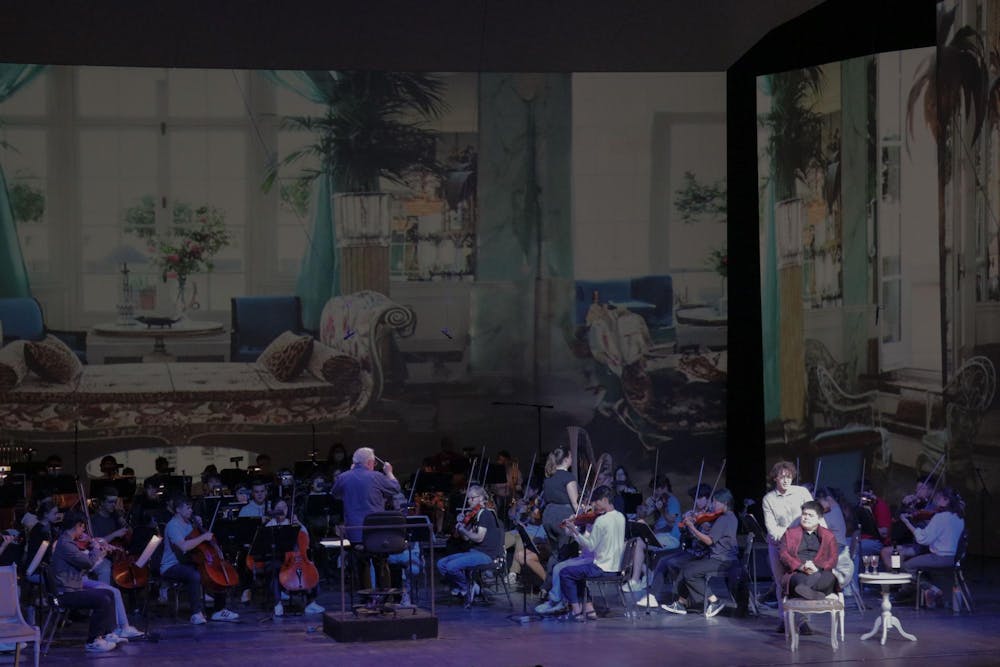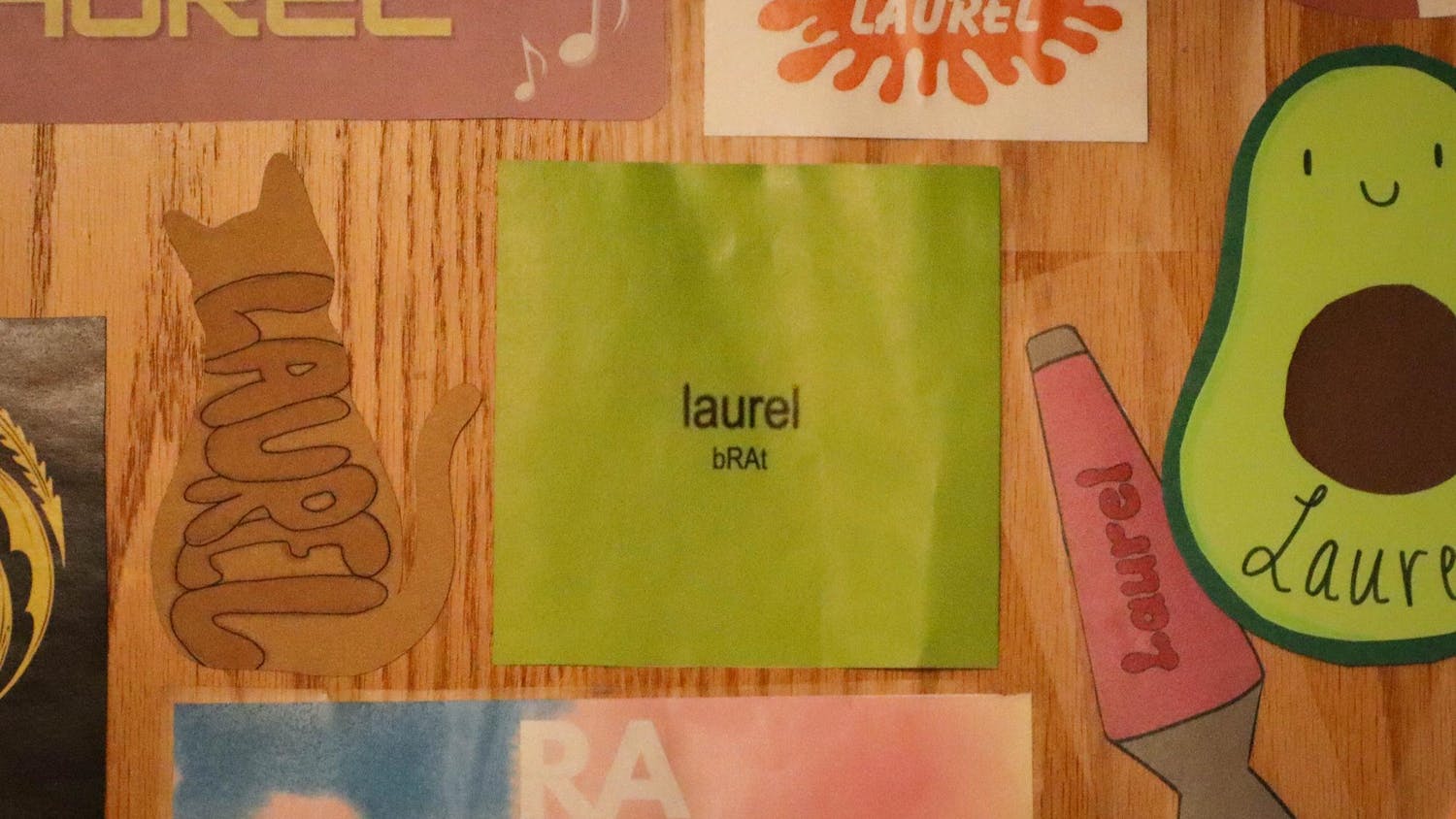The opening scenes of attending an opera are standard. Storming applause announces the conductor’s assumption of his post at the front of the pit. A grand curtain rises to reveal a dazzling set, and a cast clad in elaborate costumes, both of which immediately draw the audience into the world in which they will be immersed throughout the ensuing production.
However, this familiar routine of being introduced to a performance will be given a fresh spin during this weekend’s run of the “Pop-Up Opera.” Rather than a conventional, fully staged production, the “Pop-Up Opera” will treat audiences to a narrated concert — with singers and instrumentalists alike on the stage — of Johann Strauss II’s “Die Fledermaus” at 7:30 p.m. Oct. 25-26 at the Musical Arts Center.
Due to the scale of the 2024-25 IU opera season centerpiece — the Jacobs School of Music’s upcoming co-production with the Metropolitan Opera of “The Amazing Adventures of Kavalier and Clay” — the selection of the Pop-Up Opera was left until this fall. The opera performances surrounding this co-production needed to accommodate the great logistical, financial, and manpower demands of “Kavalier and Clay.”
“We knew it was going to be a concert,” Michael Shell, the IU Opera and Ballet Theater’s resident stage director, said. “The expense of the show is much less, because we’re not going to be building scenery: we’re going to be using projections. The costumes will be mostly concert attire.”
The uniquely tuneful score of “Die Fledermaus” made the work a natural choice for Jacobs’ first opera in concert. Additionally, the opera’s whimsical plot lends itself well to a stripped-back production, which requires audiences to lean on their imaginations.
“Because we don’t have sets, anything can really be possible. It’s kind of freeing,” Shell said. “We have a few singers interact with the orchestra and the maestro; we can blur the lines between what is a show and what isn’t.”
This opportunity to tap into the opera’s creative essence is similarly valued by its performers.
“We shouldn’t need a set or props in order to connect with our characters,” Jonathan Elmore, a doctoral voice student who will portray Gabriel von Eisenstein in one of the two “Fledermaus” casts, said. “It’s been a good exercise for a lot of us not to have the world to live in and to create the world in our heads.”
“Imagination is 99% of what we do, especially with this show,” Elmore said.
Carson Hardigree, a master’s voice student who will portray Rosalinde Eisenstein in one of the two “Fledermaus” casts, agreed.
“Without props or a set, I can let my imagination take over, because I already know who I am as a character, which gives me freedom to be that person,” Hardigree said.
In addition to providing a creative challenge, the “Pop-Up Opera” has also afforded critical training for the practical demands of the professional opera world. The cast’s work on Strauss’s music started the first week of October, and staging began only about two weeks ago. The condensed schedule to bring “Die Fledermaus” to life roughly simulates major opera companies’ timetable for putting together productions.
“As someone who has worked professionally, this is the typical timeline, if a little bit shorter,” Elmore said. “For a lot of students who haven’t had the opportunity to do this yet, it’s been a learning process in the best way. It’s a bit more intense, but the pressure is making diamonds.”
Hardigree credited all of the cast, crew, and faculty working on “Die Fledermaus” with making the expedited production process a seamless one.
“Everyone’s just jumping on and going all in,” Hardigree said. “We have a wonderful director, Michael Shell, and conductor, Kevin Murphy. They’ve just been so prepared for us and know what they want us to do, so we come in, get it done, and head home. I’ve really enjoyed it — it’s been fast, but it’s been good.”
Those behind the scenes and on stage of the “Pop-Up Opera” have embraced the spontaneity and fun of the creative process. Tickets to watch the end product of their journey are $10 for students and otherwise range from $15 to $35, and are available on the Musical Arts Center website.




